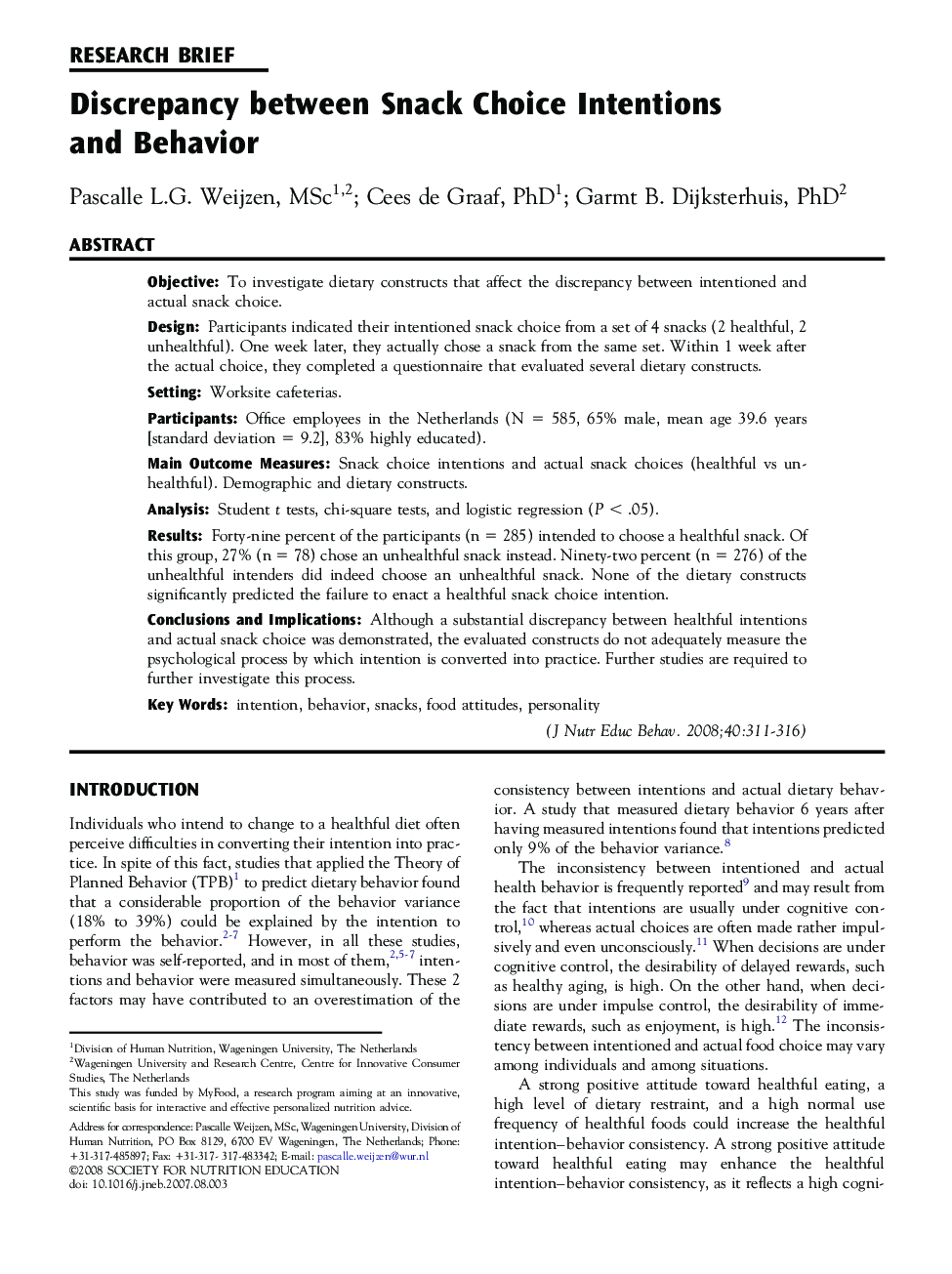| Article ID | Journal | Published Year | Pages | File Type |
|---|---|---|---|---|
| 363250 | Journal of Nutrition Education and Behavior | 2008 | 6 Pages |
ObjectiveTo investigate dietary constructs that affect the discrepancy between intentioned and actual snack choice.DesignParticipants indicated their intentioned snack choice from a set of 4 snacks (2 healthful, 2 unhealthful). One week later, they actually chose a snack from the same set. Within 1 week after the actual choice, they completed a questionnaire that evaluated several dietary constructs.SettingWorksite cafeterias.ParticipantsOffice employees in the Netherlands (N = 585, 65% male, mean age 39.6 years [standard deviation = 9.2], 83% highly educated).Main Outcome MeasuresSnack choice intentions and actual snack choices (healthful vs unhealthful). Demographic and dietary constructs.AnalysisStudent t tests, chi-square tests, and logistic regression (P < .05).ResultsForty-nine percent of the participants (n = 285) intended to choose a healthful snack. Of this group, 27% (n = 78) chose an unhealthful snack instead. Ninety-two percent (n = 276) of the unhealthful intenders did indeed choose an unhealthful snack. None of the dietary constructs significantly predicted the failure to enact a healthful snack choice intention.Conclusions and ImplicationsAlthough a substantial discrepancy between healthful intentions and actual snack choice was demonstrated, the evaluated constructs do not adequately measure the psychological process by which intention is converted into practice. Further studies are required to further investigate this process.
